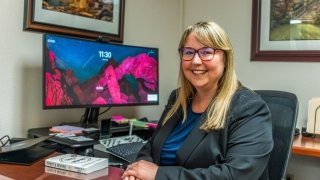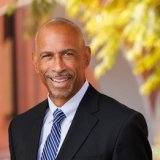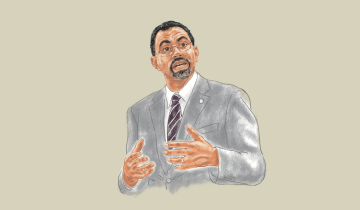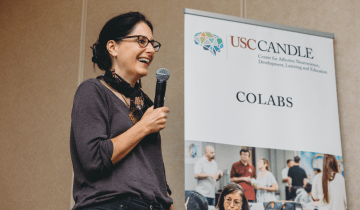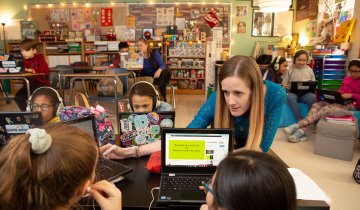When April Moore EdD ’12, superintendent of Sierra Sands Unified School District, reflected on her team’s experience with last year’s Breakthrough Leadership Institute (BLI), one word kept surfacing: transformation.
“In education leadership, it’s easy to get caught in the whirlwind,” Moore explained, referencing the concept from the book The 4 Disciplines of Execution. “The day-to-day demands can be so overwhelming that we lose sight of the big, wildly important goals.”
But for Moore and her team, BLI was a critical reset—a structured, research-based program that allowed them to step away from distractions, regroup and move forward with clarity. “The Institute gave us protected, intensive time off-site, grounded in current research and best practices,” she said. “We arrived with a problem of practice, but we left with a true focus, a concrete action plan and a renewed sense of shared purpose.”
That problem of practice ultimately centered on student voice. Moore’s team not only identified this focus but also built an actionable roadmap to elevate it district-wide. “We came to understand what really mattered to us,” Moore added. “And because we had that clarity, we could adjust along the way while staying true to our goals.”
Even more importantly, she said, the experience helped solidify the team’s identity as system-level change agents. “We moved from reactive to proactive,” she said. “It wasn’t just professional development—it was professional transformation.”
The impact of BLI went beyond theory. Moore described her team’s return from the program as a turning point: “Each person had a clear role and a deep understanding of the vision and priorities. That empowered them to actually implement the plan—and adjust it as needed—because they understood why we were doing it.”
The results didn’t go unnoticed. Moore’s board, initially briefed on the team’s action plan, witnessed the tangible progress in its rollout. “We were able to show them what we intended to do, and then we followed through,” she added. “It was proof of concept in real time.”
In today’s climate, justifying the investment in leadership development can be challenging. “We used restricted one-time funding dedicated to professional development,” she explained. “And now, not only are we going back, but we’re bringing three teams with us next time.”
What makes BLI unique, Moore noted, is not just the structure or the strategy—it’s the community. “It creates a safe space where teams can have deep, honest conversations away from the pressures of everyday leadership. That kind of space is rare—and essential.”
This year, Moore is especially excited about the pre-conference opportunity to engage directly with USC Rossier Dean Pedro Noguera. “He really pushed and challenged our thinking the last time,” Moore said. “The idea that we can meet with him beforehand to refine our problem of practice—that means we’ll hit the ground running.”
Her message to other educational leaders considering BLI? Don’t hesitate. “If you’re serious about transformational leadership, about moving from ideation to implementation—this is the place. This is the process.”
And for teams who want to take advantage of that personalized pre-conference opportunity with Dean Noguera, Moore added: “Make sure to register by April 18.”
USC Rossier Professor Darline Robles, BLI director, said, “For districts eager to move beyond ideation into sustained, systemic impact, April Moore’s story is a compelling case study of how transformative leadership can take root when the right conditions—and support structures—are in place.”

